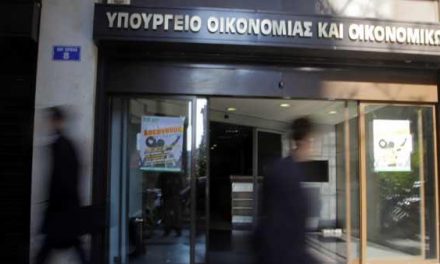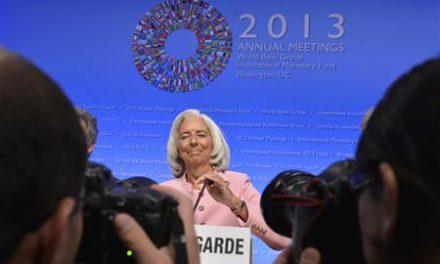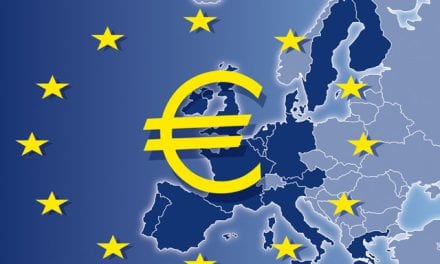Dimitri Lascaris discusses what’s at stake with talk of referendums in Greece and Germany.
SHARMINI PERIES, EXEC. PRODUCER, TRNN: Welcome to The Real News Network. I’m Sharmini Peries coming to you from Baltimore.
For those of you who are dedicated followers of Greece on The Real News Network, I want to apologize for the lapse in our coverage. Two things disrupted our regular coverage, and that is first the Baltimore uprising against police brutality in the aftermath of the death of Freddie Gray. Since it was happening in our city we threw all of our resources behind it. And secondly, we lost Dimitri for a few weeks as he lost important members of his family, including his father, George. George was an adamant follower of everything that was going on in his native Greece, and was Dimitri’s native informant and discussant, and kept him on his toes.
Dimitri, our very deepest condolences to you for your loss, and also here’s a toast to your father, George.
DIMITRI LASCARIS, SECURITIES CLASS ACTIONS LAWYER IN CANADA: Thank you, Sharmini. Much appreciated. And I must say, you’ve been doing–you and your colleagues at The Real News have been doing a wonderful job of following the very important events in Baltimore. So it’s with good reason that you’ve had in your Greece coverage.
PERIES: Thank you, Dimitri. So Dimitri, there was a very important meeting that took place between Prime Minister Alexis Tsipras and Chancellor Merkel of Germany. Tell us what happened.
LASCARIS: Well, the reports are conflicting, and consistent with the pattern we’ve seen over the last few weeks and if not months. And that is when these high-level meetings occur which involve Mr. Tsipras and Ms. Merkel, Mr. Tsipras will express typically optimism that a deal can be struck imminently, and that the eurozone can move forward and emerge from the crisis. But then usually it’s Wolfgang Schauble, not Chancellor Merkel herself, who will douse, throw some water on the notion that there has been any progress made and that they’re getting close to a deal, and that’s precisely what happened in this case. Mr. Schaubel, following expressions of, encouraging expressions from Mr. Tsipras, indicated that in fact the parties remain far apart.
So the account of what is happening, the sort of concrete reports about what is happening in negotiations do suggest that the parties remain significantly apart, and are not making significant progress in terms of the issues that have separated them to date. One of those key issues, for example, is pensions. And it continues to be the case that Greece’s creditors by all reports are demanding further reductions in Greek pensions. And the Greek government continues to characterize that as a red line that it will not cross.
And to give a sense, some context to the difficulty that Greece is confronting here, it is true that as measured as a percentage of GDP Greek pension spending, pension spending by the Greek government, is high. In fact, it’s the highest in the eurozone. But that is due to two factors, primarily. The one is that Greece’s GDP has plummeted over the last five years. There’s been an economic contraction on the order of 25 percent. And so its pension spending has grown relative to GDP because of this drastic reduction in its GDP. But the other reason why it’s so high relatively speaking, as a percentage of GDP, is that Greece has an unusually large percentage of retirees. Something like 20 percent of the population is 65 years or older.
When you adjust Greek pension spending for the number of retirement-age persons in its population, it actually is below average in the eurozone. And it is substantially below pension spending on the same basis by the countries that are most adamant that Greece has to reduce its pensions. Namely, Germany, France, the Netherlands, and Finland.
Notwithstanding these realities, it continues to be the case that the creditors are demanding further reductions in Greek pensions. And understandably that’s a line that the government will not cross, or at least it says it will not do so. And it [would have] extraordinarily difficult justifying that to the population. And there’s just no indication of any progress on that front. To debate–not to mention others, as well. For example, further reductions in the minimum wage. Another red line the Greek government has articulated is restructuring of the debt. Absolutely essential, because everybody who is prepared to be honest about the realities confronting Greece acknowledges that Greek debt is unsustainable. But there seems to be absolutely no appetite on the part of Greece’s creditors for a further write-down of debt.
So it’s hard to see how they’re going to achieve an agreement within the next couple of weeks. And frankly that’s what they’re going to have to do. Because as the Greek government has been saying quite clearly, there is a payment due to the IMF of approximately 300 million Euros on June 5th, and the government barely managed to make the most recent payments to its creditors, and they’re now saying, they’re admitting openly, in fact, insisting that unless further bailout money is advanced by the creditors,, Greece will be unable to make that payment to the IMF on June 5th.
PERIES: And will be in default.
LASCARIS: Correct. Now, there are some–under the rules of lending of the IMF apparently there’s some grace period that Greece would have in order to make the payment. But it’s hard to see how they would cobble together sufficient funds in order to satisfy the obligations to the IMF in the near-term, because that payment, that 300 million Euro payment, is only one of several payments that are due in the month of June. In fact, the total amount of payments exceeds a billion Euros that would have to be paid the month of June, and then there are further payments to be made in July and August.
So really matters seem to have come to a head, or at least will be in the very near future. Interestingly, you’re now hearing talk of a referendum. Not only on the Greek side, but even Wolfgang Schauble, the German finance minister, is embracing the notion of a referendum ,whereby I think his hope would be the Greek people would accede to the demands of Greece’s creditors and opt to remain in the Euro, even if that meant the government crossing its red lines.
And what’s quite interesting about this is the same government, the Merkel government, in 2011, when the Pasok regime of George Papandreou proposed a referendum effectively with the assistance of the other creditors. Achieved a soft coup with in Greece, and replaced Papandreou with one of his rivals within the Pasok party, Venizelos, and a technocrat, Lucas Papademos, who had been the head of the Bank of Greece was put in place in a caretaker government.
But now the attitude of the German government has changed. Which is a very interesting development. They are now embracing the notion of a referendum, maybe because they think that the Greek people will vote the right way, the way they want them to vote. Maybe because at the end of the day they’ve decided that it’s time for Greece to leave the Eurozone. It’s hard to know exactly what their perspective is on this. But it’s certainly in stark contrast to the attitude they had towards a Greek referendum in 2011.
PERIES: And Dimitri, what is the government doing at this time in order to make its pension payments and meet the public purse?
LASCARIS: Well, one of the extraordinary steps it took was to direct municipalities to forward to the central government their cash reserves. And many of them simply refused to do that. Some of them did. And I think at this stage they’ve basically tapped all domestic resources that they can in order to meet payments, and that’s why they’re saying, finally, that they’re not going to be able to make the next payment that’s due.
In fact, the last payment apparently was, they were able to make it only because the IMF allowed Greece to access a reserve account with the IMF. Effectively what happened with respect to the last payment is that the IMF lent money to Greece so that Greece could meet its debt-servicing obligation to the IMF, which is the quintessence of extend and pretend. So we’re already in a world where Greece’s ability to service its debt is hanging by a thread. It’s hard to see what other options now remain to them other than a default, in the absence of further funding from Greece’s creditors.
PERIES: And finally, Dimitri, before we had this lapse in our coverage there was a visit by Prime Minister Alexis Tsipras to Russia and he met with President Putin. Did anything come out of that?
LASCARIS: Well, initially it appeared that Greece was going to sign on to a Russian gas pipeline project. And there were reports probably in the nature of rumors, not well-substantiated reports, that Russia had advanced several billion Euros to Greece in anticipation of Greece joining that project. However, the U.S. government then proceeded to put intense pressure on the Greek government not to participate in the Russian pipeline project, and the Greek government appears to have now, to have backtracked to a degree on that, and doesn’t appear to be committed to it. And it seems unlikely ultimately that it will join in the Russian gas pipeline project.
It’s possible however that that maneuver on the part of Greece, the suggestion that it might move closer to the Russians and become a participant in this gas pipeline project caused the Obama administration for geopolitical reasons to put some pressure on the EU, the eurozone, the ECB, to be somewhat more conciliatory to Greece. But so far, Greece’s creditors have resisted any significant concessions, as far as I can tell.
PERIES: Dimitri, we’ll be following this, as I’m sure you will be. Thank you so much for joining us today.
LASCARIS: Thank you, Sharmini.
PERIES: And thank you for joining us on The Real News Network.



















